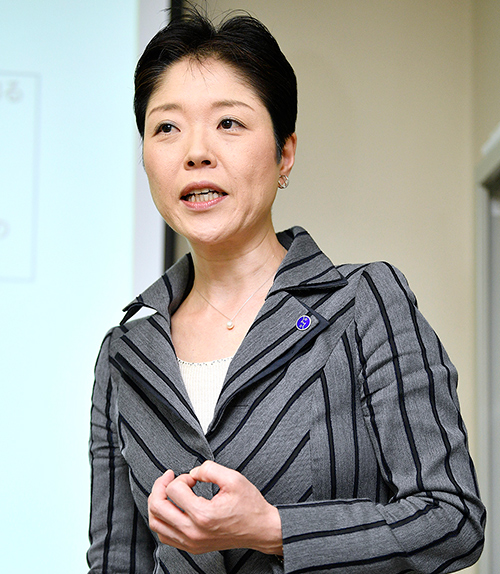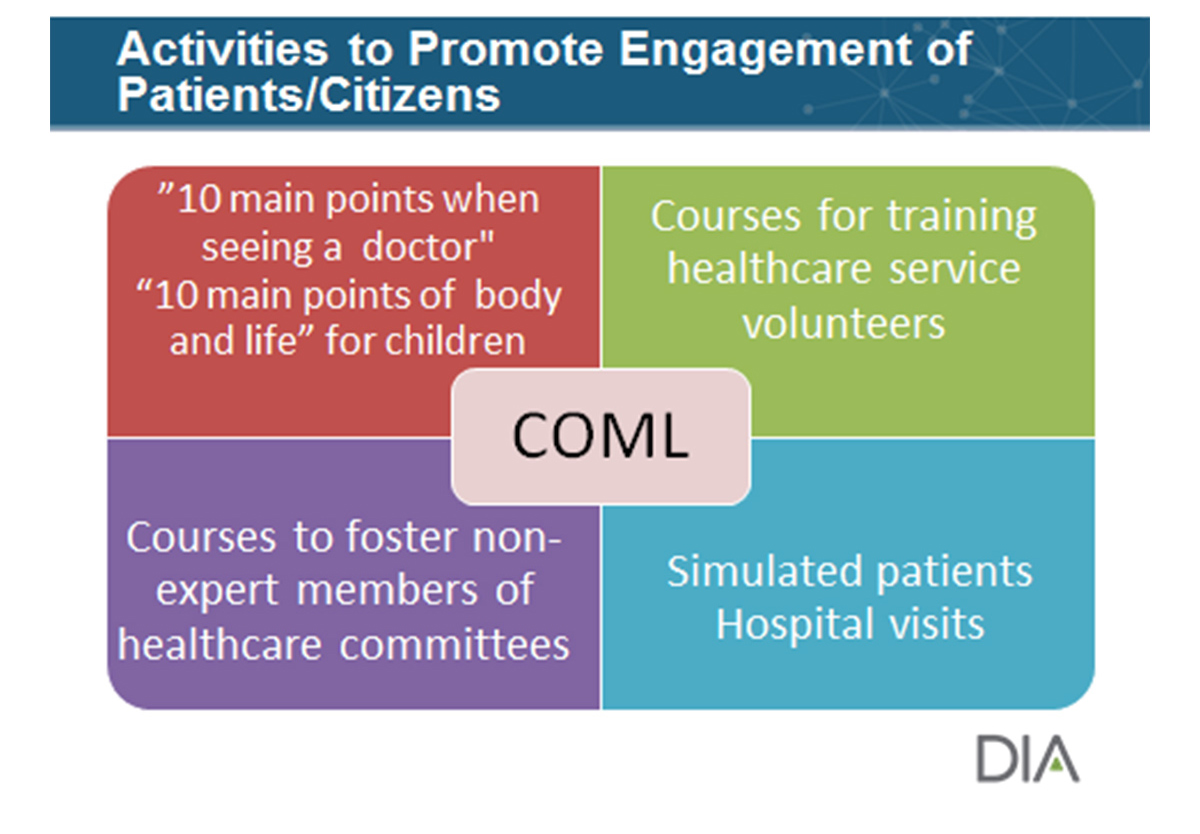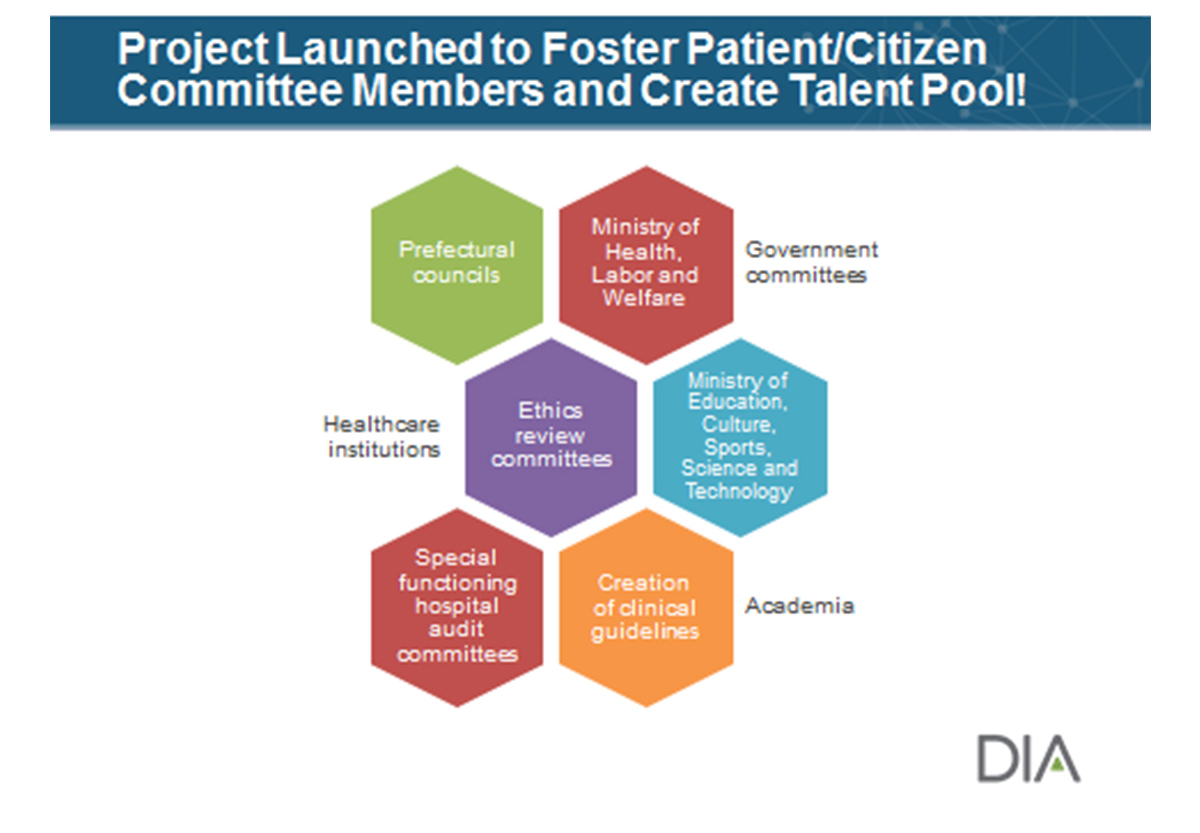Around The Globe
Raise the Curtain of “Patient Centricity” in Japan
Yoshikata Furuya
Community Leader,
DIA Japan
Patient Engagement Community
ecently, the ideas of “patient centricity” and “patient and public engagement” have been rapidly attracting attention in Japan. At the DIA Japan Annual Meeting 2017 session “Raise the Curtain of Patient Centricity in Japan” an expert in Science, Technology, and Society, a representative of a patient support group, and an expert in clinical studies in a pharmaceutical company shared their opinions and initiatives.

Ikuko Yamaguchi
This article describes the initiative of the Consumer Organization for Medicine & Law (COML), a leading non-profit patient support group in Japan, focusing on its activities of fostering patient and citizen members of healthcare-related committees, through the remarks of COML Board Chairperson Ikuko Yamaguchi.
Since 1990, COML has promoted collaboration and better communication between patients and healthcare providers and has established a successful track record. COML conducts four major activities to promote patient and public engagement as shown in the infographic below.

The 10 main points when seeing a doctor booklet shows how patients should engage with healthcare as key players, and the 10 main points of body and life booklet for children highlights the importance of becoming interested in their lives and bodies from childhood and equally valuing their own lives and the lives of others.
In 2009, COML launched a program to educate citizens who support healthcare. This is an opportunity for the general public to learn about healthcare volunteering activities as well as to obtain basic knowledge of healthcare systems, pharmaceutical products, and the reality of healthcare consultation.
In an advanced course for those who have completed the above program, COML prepares citizen members for healthcare-related committees. This program offers hands-on training, including debates, attendance at the Ministry of Health Labor and Welfare’s (MHLW) council meetings, and simulated discussions. In addition, COML offers a course at specifically educates Research Ethics Committee members.
As the infographic below illustrates, COML offers a broad spectrum of programs. In Japan, after the late 1990s, study groups and Government and healthcare institutions committees started to include patients as members. Currently, patients and citizens have diverse engagement opportunities at study group meetings of the MHLW and the Ministry of Education, Culture, Sports, Science, and Technology, prefectural healthcare-related councils and committees, medical organizations as executive and advisory members, and independent administrative agencies as external evaluation members. Research Ethics Committees for trials and clinical studies are required to have citizen members, and patients and citizens have a broad range of engagement opportunities. People who have completed COML’s programs serve as members in these meetings. In addition, COML is considering creating a talent pool which registers people, who have completed the advanced course and meet certain requirements.

To promote patient and public engagement, more opportunities are required; it is essential to educate patients and citizens to acquire the required knowledge and skills through programs like the ones offered by COML. The 3rd Basic Plan to Promote Cancer Control announced by MHLW in March 2018 states that the Japan Agency for Medical Research and Development (AMED) will launch a program to promote cancer research in FY 2018 with the participation of cancer patients and cancer survivors, and that the National Government will start creating an educational program to educate patients, who will be able to join the planning and evaluation of cancer research. It is expected that these kinds of national frameworks will become well established in Japan.

